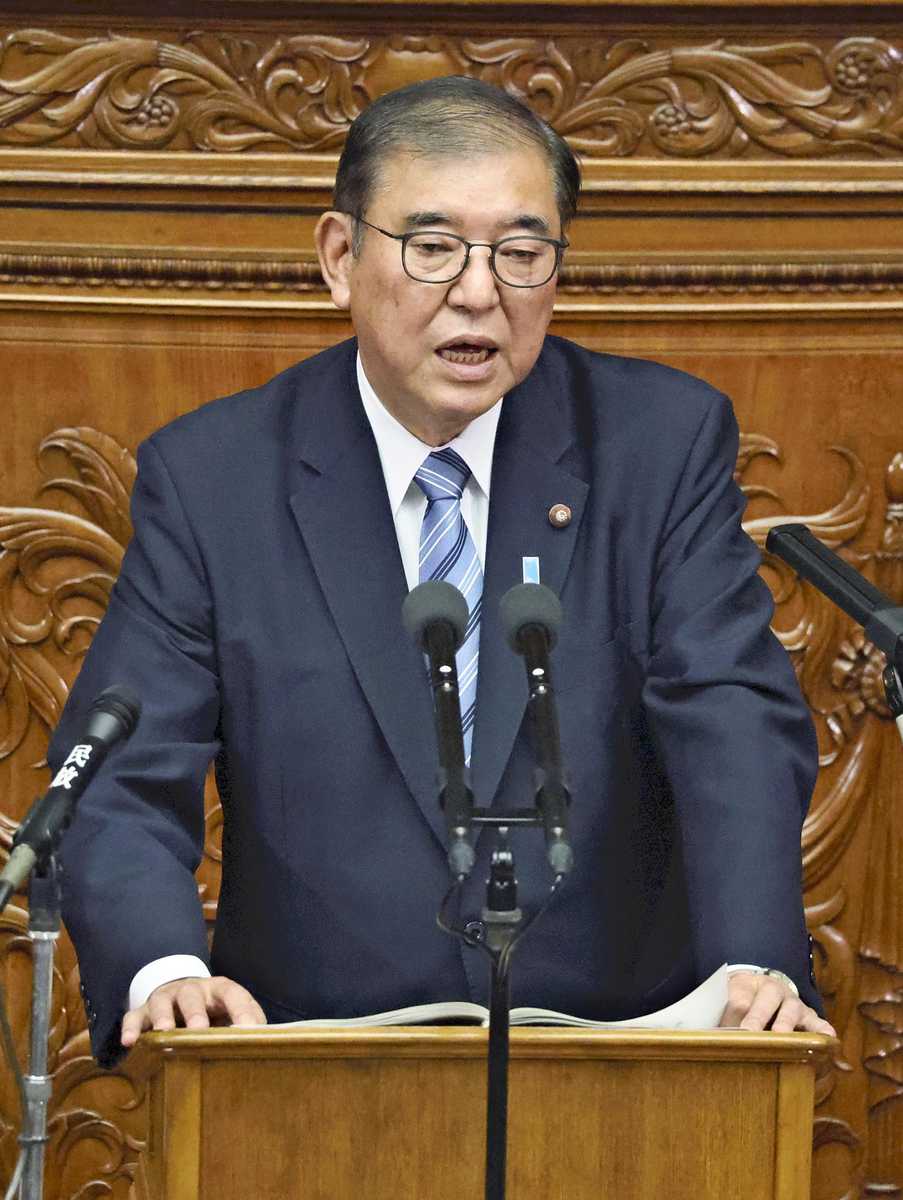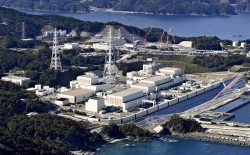Ishiba’s Policy Speech Highlights Income Tax Barrier; Japan’s PM Also Vows To Fight ‘Dark Part-Time Jobs’

Prime Minister Shigeru Ishiba delivers his policy speech during a plenary session of the House of Representatives in the Diet building in Tokyo on Friday.
17:50 JST, November 29, 2024
Prime Minister Shigeru Ishiba vowed to review the “¥1.03 million barrier,” the annual income threshold above which income tax is levied, in his policy speech delivered to both chambers of the Diet on Friday.
The Democratic Party for the People has called for the review of the barrier. In his speech during plenary sessions of the chambers, Ishiba showed a stance of seeking to build a broad policy consensus as he leads a minority ruling coalition. He said that foreign affairs and security, restoring Japan’s vitality, and public safety and disaster management are key issues. He also pledged to reach a conclusion on achieving political reform.
Regarding the ¥1.03 million barrier, the prime minister expressed his intention to “discuss it as part of tax reform for fiscal 2025 and raise [the threshold].” He also stressed that the government would “consider and reach a conclusion” on gasoline tax reduction, a measure that has also been sought by the DPFP.
At the beginning of his policy speech, Ishiba quoted words from a policy speech delivered by then Prime Minister Tanzan Ishibashi in 1957, making a pledge to “create a practice of exchanging opinions frankly” and “spare no effort in cooperating with each other.” He showed an attitude of holding consultations with each political party in a humble manner under a minority ruling coalition.
During the speech, Ishiba pointed to his diplomatic achievements at summits of the Asia-Pacific Economic Cooperation forum and the Group of 20 economies, as well as meetings held on the sidelines of those gatherings earlier this month. He pledged to create a “desirable security environment” by continuing to engage in dialogue with other countries and strengthen the Japan-U.S. alliance. Regarding U.S. President-elect Donald Trump, Ishiba also stated his intention to “hold frank discussions and bring the alliance to a higher level.”
Toward achieving economic growth, the prime minister vowed to “restore the vitality of Japan as a whole.” He placed importance on restarting regional revitalization and shifting the nation’s economy to a growth-oriented model led by wage increases and investment. He described regional revitalization, on which he has placed focus, as “both an economic and social policy that will restore Japan’s vitality.”
On public safety and disaster preparedness, Ishiba expressed his eagerness to advance preparations for the establishment of a disaster management agency, which is his signature idea. He said he seeks to crack down on rampant “dark part-time jobs,” referring to such crimes as robberies for which participants are recruited through social media, and take such measures as removing related recruitment information from the internet.
With regard to political reform, Ishiba vowed to present a conclusion by the end of this year, which will include a decision on what kind of legislation will be necessary, toward the abolition of policy activity expenses, which are paid by political parties to their lawmakers, and toward the establishment of a third-party organization to audit political funds, among other measures.
Related Tags
Top Articles in Politics
-

Japan PM Takaichi’s Cabinet Resigns en Masse
-

Sanae Takaichi Elected 105th Prime Minister of Japan; Keeps All Cabinet Appointees from Previous Term
-

Japan’s Govt to Submit Road Map for Growth Strategy in March, PM Takaichi to Announce in Upcoming Policy Speech
-

LDP Wins Historic Landslide Victory
-

LDP Wins Landslide Victory, Secures Single-party Majority; Ruling Coalition with JIP Poised to Secure Over 300 seats (UPDATE 1)
JN ACCESS RANKING
-

Japan PM Takaichi’s Cabinet Resigns en Masse
-

Japan Institute to Use Domestic Commercial Optical Lattice Clock to Set Japan Standard Time
-

Israeli Ambassador to Japan Speaks about Japan’s Role in the Reconstruction of Gaza
-

Man Infected with Measles Reportedly Dined at Restaurant in Tokyo Station
-

Man Infected with Measles May Have Come in Contact with Many People in Tokyo, Went to Store, Restaurant Around When Symptoms Emerged


















